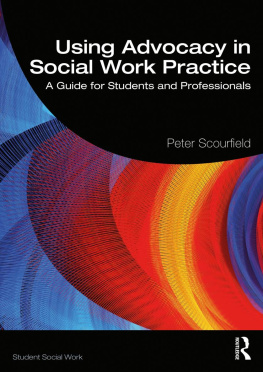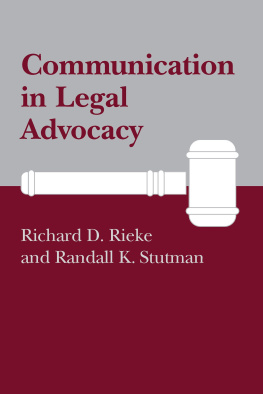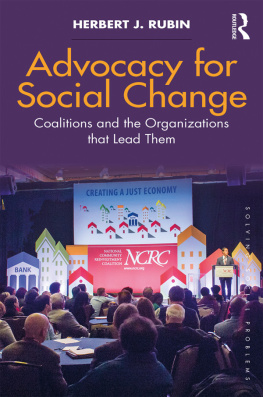This book forms part of the SAGE Social Work in Action series, edited by Steven M. Shardlow.
Jane Dalrymple and Jane Boylan 2013
First published 2013
Apart from any fair dealing for the purposes of research or private study, or criticism or review, as permitted under the Copyright, Designs and Patents Act, 1988, this publication may be reproduced, stored or transmitted in any form, or by any means, only with the prior permission in writing of the publishers, or in the case of reprographic reproduction, in accordance with the terms of licences issued by the Copyright Licensing Agency. Enquiries concerning reproduction outside those terms should be sent to the publishers.
Library of Congress Control Number: 2013935593
British Library Cataloguing in Publication data
A catalogue record for this book is available from the British Library
ISBN 978-1-4462-0149-7
ISBN 978-1-4462-0150-3 (pbk)
SAGE Publications Ltd
1 Olivers Yard
55 City Road
London EC1Y 1SP
SAGE Publications Inc.
2455 Teller Road
Thousand Oaks, California 91320
SAGE Publications India Pvt Ltd
B 1/I 1 Mohan Cooperative Industrial Area
Mathura Road
New Delhi 110 044
SAGE Publications Asia-Pacific Pte Ltd
3 Church Street
#10-04 Samsung Hub
Singapore 049483
Editor: Kate Wharton
Assistant editor: Emma Milman
Production editor: Katie Forsythe
Copyeditor: Solveig Gardner Servian
Proofreader: Imogen Roome
Indexer: Avril Ehrlich
Marketing manager: Tamara Navaratnam
Cover design: Wendy Scott
Typeset by: C&M Digitals (P) Ltd, Chennai, India
Printed in Great Britain by Henry Ling Limited at the Dorset Press, Dorchester, DT1 1HD
For Rosemary and Pam
About the Authors
Jane Boylan is Senior Lecturer in Social Work at the University of Keele, England. Her research interests include advocacy, looked after children and children and young peoples rights. She has published widely in the field of childrens rights and advocacy, including Understanding Advocacy for Children and Young People (Open University Press, 2009) with Jane Dalrymple.
Jane Dalrymple is a freelance trainer and consultant. She practiced as a social worker in children and family services for many years and ran a national advocacy service for five years. For the last 16 years she has worked as a senior lecturer on the social work course at the University of the West of England. She has published widely in the field of advocacy including Understanding Advocacy for Children and Young People (Open University Press, 2009) with Jane Boylan. Jane now works as an independent trainer across the UK and in Europe and assesses independent advocates.
Acknowledgements
We have been fortunate in undertaking this work to have had the support of colleagues, friends and our families. Special thanks are due to all those who have commented on draft chapters and given thoughtful advice and observations. Particular thanks go to John Pierson, Mo Ray, Pat Woolley, Kate Mercer and Beverley Burke who all read various chapters and gave very helpful feedback. We would also like to thank the students and practitioners for enthusiastically sharing their experiences which contributed to case material, in particular we would like to thank Nicola, Bev, Isobel, Michael and Becky. Special thanks to Emma Milman of SAGE for her patience and support throughout the writing process. Thanks are also due to Steven Shardlow who originally approached us to write the book. Finally, Paul and Ian for their tolerance, support and good food.
The authors and publisher would like to thank the following for permission to reproduce copyright material in the form of extracts, figures and tables:
reprinted by kind permission of the Welsh Government.
Various extracts in reprinted by kind permission of Joyce Rimmer.
reprinted by kind permission of the archive of the Institute of Medical Social Workers, Modern Records Centre, University of Warwick.
reprinted by kind permission of the National Portrait Gallery, London.
Dereks story in reprinted with kind permission of Derek James and Advocacy Matters.
The extract from the research report in , Local authority childrens rights services in Scotland, reprinted with kind permission of Susan Elsley.
Material in the Motivation to be a social worker case study in reprinted with the kind permission of Guardian News and Media Ltd.
Introduction
Advocacy has traditionally been a key element of social work practice (Coulshed and Orme, 1998; Payne, 2000a; Trevithick, 2005, 2012; Boylan and Dalrymple, 2009). It was identified as a central skill by the Central Council for Education and Training in Social Work (CCETSW) in 1995, an essential part of the social work role identified by the British Association of Social Workers (1996), and a key skill for social workers identified in the National Occupational Standards for Social Work (relevant for social workers in Wales, Scotland and Northern Ireland) where Key Role 3 states that social workers should support individuals to represent their needs, views and circumstances. An aspect of this role is to advocate with, and on behalf of individuals, families, carers, groups and communities (TOPSS UK Partnership, 2002). The Professional Capabilities Framework (TCSW, 2012) for social workers in England requires social workers to recognise and promote individuals rights to autonomy and self-determination (2012: 2) and advance human rights and promote social justice (2012: 4), and therefore we can see that effective social work advocacy is fundamental. However, while social workers recognise advocacy as an important feature of contemporary practice, they may feel less sure about how to translate the concept into action. This partly reflects the nature of social work today, which over recent years has become constrained by bureaucracy and proceduralisation of services and resources.
The development of independent advocacy, particularly the provision of statutory advocacy, has also developed within the current climate of social work practice, and has contributed to the way social workers now view their advocacy role. Service users have fought vigorously over many years to have a voice in decisions concerning their lives and in how services are provided, and have been a significant force in promoting the development of independent advocacy services. As a consequence, advocacy in social work has been subsumed by independent advocacy, with debates between the independent advocacy sector and health and welfare professionals about what advocacy really is. We believe that independent advocacy has a crucial role to play in maintaining the participation rights of people using services. Service users and carers must have access to independent advocacy support when it is difficult, if not impossible, for social workers to take on an advocacy role. However, we also argue that social workers and other health and welfare professionals have a crucial role to play in promoting rights, participation and service user involvement, and that they should be reclaiming their advocacy role.














